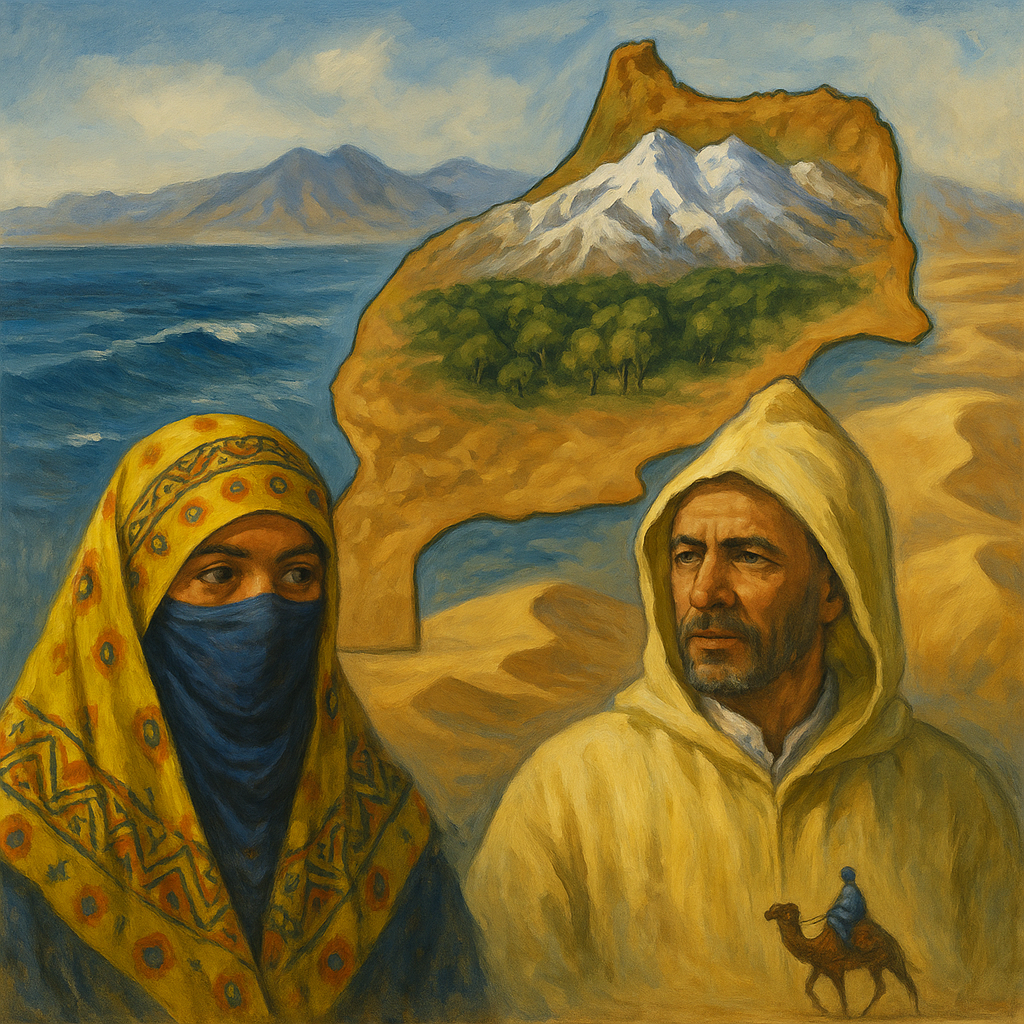
Morocco is a land of contrasts, mystery, and timeless beauty. Nestled in North Africa, it stands as a gateway between Europe and the Arab world, blending ancient traditions with modern aspirations. From the snow-capped peaks of the Atlas Mountains to the sweeping sands of the Sahara, Morocco’s charm lies in its diversity—of landscapes, people, languages, and cultures. This article explores the many facets that make Morocco truly exceptional, offering a deeper understanding of its unique identity and rich heritage.
1. Geographic Diversity
Morocco is a land of striking landscapes and rich natural variety. Its geography ranges from coasts to mountains and deserts, offering something for every traveler and local alike.
From the blue waves of the Atlantic Ocean to the golden dunes of the Sahara, the country's terrain shifts dramatically, making it ideal for adventure tourism and nature lovers.
The beauty of Morocco lies in its ability to surprise: lush forests, snow-capped mountains, and arid deserts all coexist in one country.
The north boasts the lush Rif mountains, while the center is home to the Atlas ranges, and the south gives way to the enchanting Saharan dunes and oases.
2. Historical and Cultural Heritage
Morocco’s long history is reflected in its ancient cities, Roman ruins, and Islamic architecture. Every corner tells a story from a different era.
UNESCO World Heritage cities like Fes, Marrakech, and Meknes showcase centuries of culture and craftsmanship, from medersas (schools) to majestic palaces.
Morocco is a bridge between civilizations, influenced by Berbers, Arabs, Andalusians, and Europeans over the centuries.
This rich mix shaped Moroccan identity and gave rise to a vibrant cultural heritage that is alive in art, music, and architecture.
3. Cultural and Linguistic Diversity
The Moroccan people speak multiple languages and represent various ethnic backgrounds, including Arabs, Amazigh (Berbers), and others.
The presence of French, Spanish, and increasingly English, alongside Arabic and Amazigh languages, enriches daily life and communication.
Morocco is a melting pot of languages and traditions. This diversity is celebrated rather than suppressed.
In markets, schools, and homes, it’s common to hear people switch between languages seamlessly—a true testament to cultural coexistence.
4. Famous Moroccan Cuisine
Moroccan food is globally renowned for its unique combination of spices, textures, and slow-cooked flavors.
Popular dishes include couscous, tagine, pastilla, and harira, often accompanied by mint tea and traditional bread.
Moroccan cuisine is more than food—it is a cultural experience passed from generation to generation.
Meals are often social events, filled with hospitality and variety, especially during special occasions and Fridays.
5. Hospitality and Generosity
Moroccan culture places high value on welcoming guests and showing respect to strangers and visitors alike.
Serving tea, offering food, and showing kindness to newcomers are deeply rooted traditions across Moroccan society.
In Morocco, hospitality is considered a virtue and a duty. Visitors are treated as honored guests, even in modest homes.
This generosity is a source of national pride and helps create strong community bonds and unforgettable experiences for tourists.
6. Traditional Clothing
Moroccan traditional attire is both elegant and practical. It reflects identity, status, and local customs.
Garments like the djellaba, kaftan, and amazigh outfits are worn during celebrations and religious festivals, often made with fine embroidery and rich fabrics.
Clothing in Morocco is more than fashion—it is a form of cultural expression, connecting people to their roots and heritage.
Each region has its own styles, colors, and patterns that tell stories of origin, social belonging, and artistry.
7. Strategic Location
Located at the crossroads of Europe and Africa, Morocco enjoys unique access to international trade, tourism, and cultural exchange.
This position has made Morocco a hub for economic development and a gateway for dialogue between continents.
Morocco's location gives it a significant geopolitical and economic advantage in both African and Mediterranean contexts.
It serves as a link between civilizations and plays a vital role in regional partnerships, innovation, and cultural diplomacy.
8. Political and Religious Stability
Morocco is known for its relative political stability in the region, under a constitutional monarchy with deep historical roots.
Religious coexistence is encouraged, with a moderate Islamic approach that promotes tolerance and peace.
In a region often affected by instability, Morocco remains a calm and consistent presence.
The country's peaceful religious practices and policies have earned it a reputation for tolerance, dialogue, and spiritual balance.